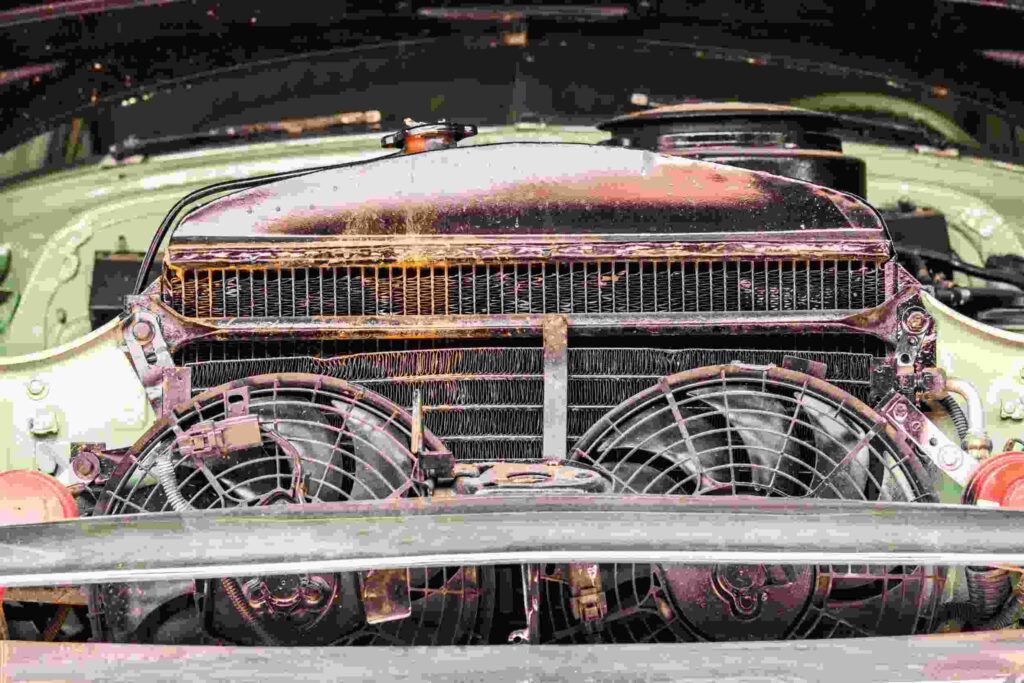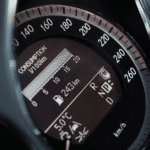While the purpose of a cooling fan is to regulate the engine temperature and prevent overheating. Irregular behavior, such as the fan pulsing, can signal an underlying issue not caused by a faulty fan. In this short article, you’ll find all the information you need on what could cause the cooling fan to pulse.
One thing to note is this article is only intended for an electronic cooling fan. If you have a pulsing mechanical engine-driven fan, the engine is too. In this case, you should probably read more about the engine shaking at idle.
4 Reasons Why the Car Cooling Fan Keeps Pulsing
Before you read what can cause the cooling fans to pulse, there are a few different ways to describe a cooling fan that keeps pulsing, which may help diagnose the exact fault. In my mind, when I’ve seen a pulsing fan, the fan loses power for a split second, slows a little, and then spins again at full speed; this can happen over and over again rapidly. But the fan stops for a second and then restarts to someone else. I’ve tried to include all the scenarios below, and specific issues have slightly different reasons and meaning for the fan “pulsing.”
Poor power supply
The most common cause for a car cooling fan that keeps pulsing is a problem with the power supply to the fan(s). When an electric cooling fan kicks in, there is an inrush current, usually 2 to 3 times more than the fans running amps. So if you have a weak power supply, the power load will sag when the fans try to start.
Basically, there is not enough power to keep the fans turning, so the power to the relay cycles again, trying to start the fans, which is why you get the fans very rapidly turning on and off. It can also be described as the fans hunting. It’s normal that after a few goes, say 5 to 10 seconds of pulsing, the fan will eventually kick in and spin at full speed. A poor power supply can include:
- Poor terminations to the fan
- Faulty battery
- Weak alternator
- Incorrect size wiring
Faulty fan switch or relay
When the cooling fan gets a signal to operate from the ECU, a signal gets sent to the fan relay or switch. The fan relay or switch energizes, which allows power to flow to the fan; to operate. When a fan relay or switch is defective, it can chatter or go through its opening and closing cycle rapidly; you can usually hear the contacts inside the relay clicking. When this happens, the power fed to the fan cuts and restores quickly, so the fan begins to pulse as it starts to operate and then stops.
One thing to note is you can get the same scenario of the fan relay chattering if the power supply is not good enough to operate the relay. So it is only sometimes a faulty relay.
Faulty fan motor
Fan motors have a life span usually spoken in about in hours; depending on the type of fan, this can be around 5000 hours. This may not sound like a lot, but that is 5000 hours of the fan continuously operating, which it doesn’t on a car (if it does, you have another issue that you can read about).
If the fan motor starts to burn out or the internal fails, the fan may struggle to spin at full speed. Depending on the exact issue, this may be evident as the fan trying to turn fast but struggles, so it slows down, then picks up speed again; you get the idea.
Bad coolant temperature sensor
The ECU gets its information on engine temperatures and when to operate the cooling fan from the coolant temperature sensor (ECT sensor). When you have a bad ECT sensor, it can consistently deliver incorrect information to the ECU.
One scenario is the ECT is telling the fan it’s time to kick in, and then the next signal a millisecond or two later is it’s now well below the temperature threshold, and the fan needs to stop operating. As a result you get this rapid on for a second then off for another second operation of the cooling fans.

How to Diagnose the Cause of a Cooling Fan That Pulses
As the most common cause of fan pulsing is a power supply issue, a battery and alternator check is the most straightforward test you can carry out. You can use a dedicated charging systems tester or a simple volt check with a multimeter.
A charging system tester is very self-explanatory. You put the positive and negative terminals from the tester on the battery and follow the instructions. But to perform a test with a voltmeter, you need to know the following:
- The battery with the engine off and keys out of the ignition must have more than 10.4 volts to qualify as a get battery.
- With the engine idling, the alternator must show it is charging between 13.4 – 14.4 volts.
You conduct both tests with the mustimeter hooked up to the battery and the multimeter set to Voltage.
Is It Safe to Drive?
Determining if it is safe to drive with a car radiator fan that pulses depends on the problem. For example, if the problem is a failed ECT sensor, the car could activate limp mode because the ECU thinks the engine is overheating when it isn’t. But you won’t be able to drive far because the vehicle will be misfiring and won’t rev past 3000rpm. On the other hand, with a failed fan switch or fan motor, if the cooling fan doesn’t operate when needed, the car will overheat. In this instance, you could drive, providing the fan isn’t required, i.e., at idle or in slow-moving traffic.
One scenario to be aware of is if the fault is a power supply problem. While the car continues to start and the fan operation is still good, you are ok to drive. The problem is if you then stop and try to restart the vehicle. It may not start again because the battery doesn’t have enough to turn the engine over. A dead battery always happens when you are miles from home.
Final Thoughts
Remember, the cooling fan is critical in maintaining the engine’s temperatures and preventing overheating-related disasters. By promptly addressing the issue of a pulsing cooling fan issue, you can avoid situations like being stranded because the batteries are flat or the fan is no longer working. If you find yourself in that scenario, I recommend you read Can you drive if the radiator cooling fan isn’t working next.









